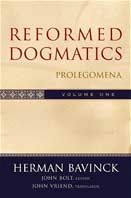Diakonia, Ecclesia, and Two Kingdoms
Reading: Ordained Servant
Enjoying: ice cream and chocolate
Listening: The New *Stenographers "Twin Cinema"
Does one's view of church and state affect their ecclesiology, or (for that matter) vice versa? Some Reformational groups apparently viewed the state and the church as coterminous (though not equally elect), and this affected their view of the diaconate. Ms. McKee notes,
In this view, Christian rulers are the leading laity and thus the natural church members to hold the public offices of moral oversight, education, and relief for the poor. For example, among Lutherans and the Zwingli Reformed, the ministry of Word and sacraments was the only clearly ecclesiastical office. Oversight of Christians' morals and care for their daily lives were happily left to the Christian prince or explicitly assigned to the Christian magistrate. Neither tradition made conscious provision for a situation in which the civil ruler was not Christian, an important factor for the development of diakonia in the post-Reformation age.[1]
I wonder if this has any relation to what I posted here, in the third section regarding how the Church should spend her resources in relief.
If we are serious about what the biblical texts have to say about the two offices of the church and their nature, will this begin to affect our politics and how we give philanthropically?
__________________________________
Footnotes
[1]McKee, Elsie Anne. Diakonia in the Classical Reformed Tradition and Today (Grand Rapids, MI: Eerdmans Press, 1989) p. 38.Back
Labels: Art | Culture, City of Man, theology



















































